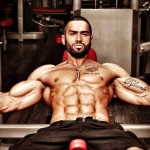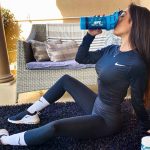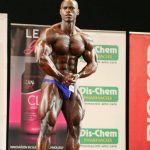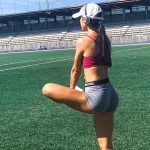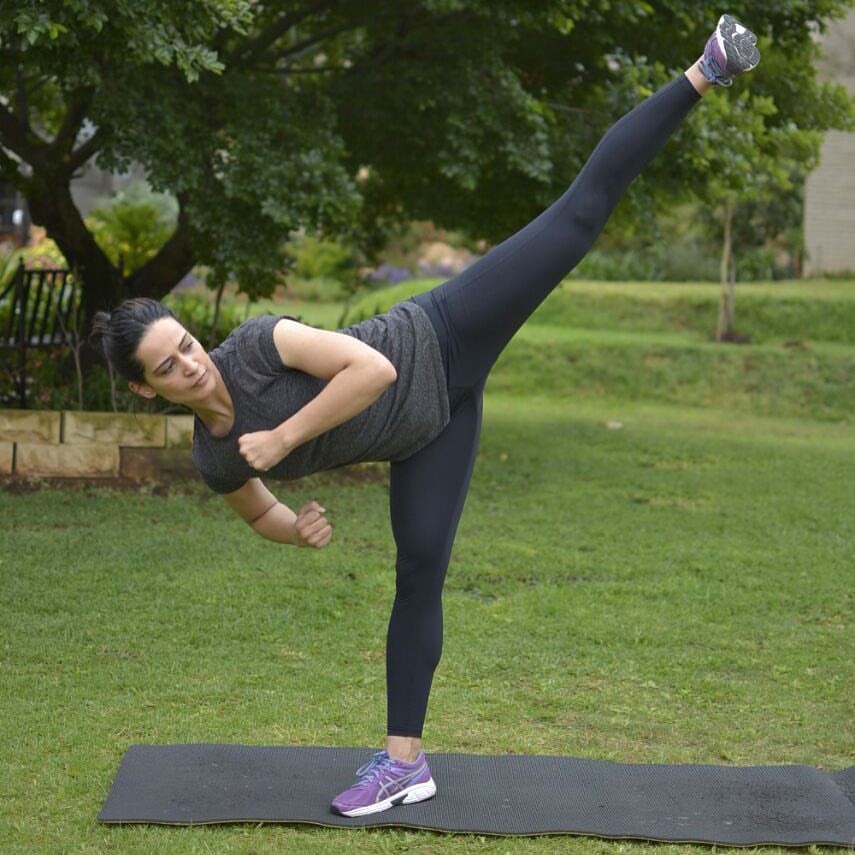Name: Jason Dunning
Age: 26
Height: 1,74 m
Competition weight: 75 kg
Current weight: 83 kg
Current city: Johannesburg, South Africa
Occupation: Exercise physiologist / Student
How did you get started in bodybuilding and fitness?
I started my training about 9 years ago. I began like many others, initially trying to gain some weight. I was incredibly light at the time (under 50kg) so my reason for training was just that.
I remember struggling to stay motivated at first, muscle mass was not something that came easily to me, however I managed to stay consistent and persevered! Things began to change for me, and training became a passion, something I loved to do rather than something I felt I had to do.
I began learning more about training and nutrition, and ultimately it became my profession. I only started competing in 2015. I had been told many times that I should give it a go, and I was hooked instantly.
From this point, I gradually moved from fitness into bodybuilding at the start of 2016.
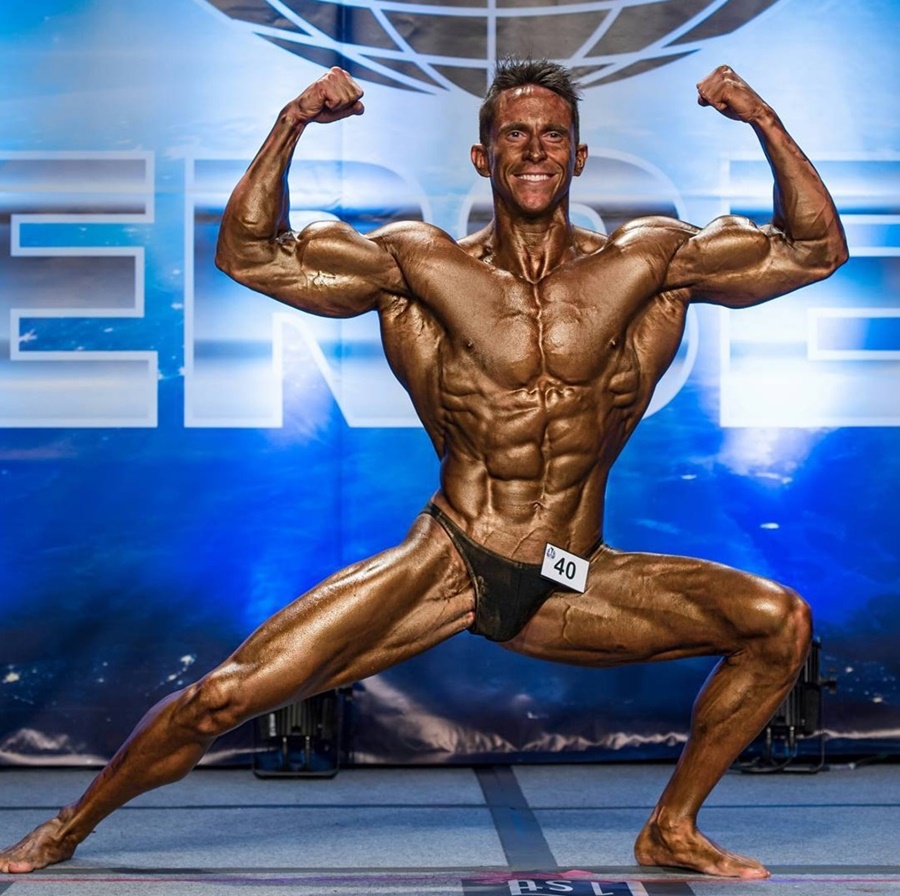
Tell us a bit about the prep for your first show and how it went and what made you enter?
In all honesty, my first show was a bit of an experiment. At that stage, I didn’t have a coach or really know anyone who had competed.
My approach was simple, track my daily caloric intake and gradually lower it each week closer to the competition. I didn’t cut out any food groups and I did no water/sodium manipulation at all.
I had a total of 3 ‘posing’ classes under my belt (which I found was incredibly important!). In the end, I ended up placing first in my line-up, although it was a very small show, it definitely started the ball rolling.
I later found out that I was making some poor choices when it came to my prep, but it all went down as experience!
How important is the mental aspect of this sport? How do you keep a positive motivated mindset and attitude through setbacks?
Personally, I find that there is a huge mental aspect to the sport. Particularly during competition seasons when you make drastic changes to your physique. Some days you will feel motivated and perform really well and other days you won’t.
Whether it is a result of nutritional changes, injury or illness, we all have those days. The reality is, that you aren’t going to feel motivated all day, every day. I find during these times its best to take it one step at a time and set small goals until you’re back into the swing of things.
Often, the days you feel the least motivated to train end up being some of the best!

Tell us a bit about competing overseas and how you manage the challenges of keeping to your diet while travelling long distances?
Competing overseas was a big concern for me initially. There are so many elements involved in competing internationally. Obviously your diet (and timing of each meal) is a huge component, and by the time you land you need to be ready to have your next meal.
The key is to be organised ahead of schedule and be prepared to carry 7 or 8 kgs of pre-prepared, meals onto the plane! This way, you know exactly what you are eating and you are able to space them out over the duration of the flight (travel times can be around 16 hours or more, so it can get a bit tricky!).
Organising transport and accommodation beforehand is obviously also very important and typically you would try and arrange for your meals to be planned/cooked or, at least offered at the venue that you’ll be staying at. Again, the diet is only one of the factors involved.
You also have to consider water retention from the altitude – which can be crippling if you plan to get on stage a couple of days after landing and usually you need to drink great volumes of water on the plane, which in itself is quite difficult.
The secret is having an experienced coach to guide you and keep your mind-set in the right direction.
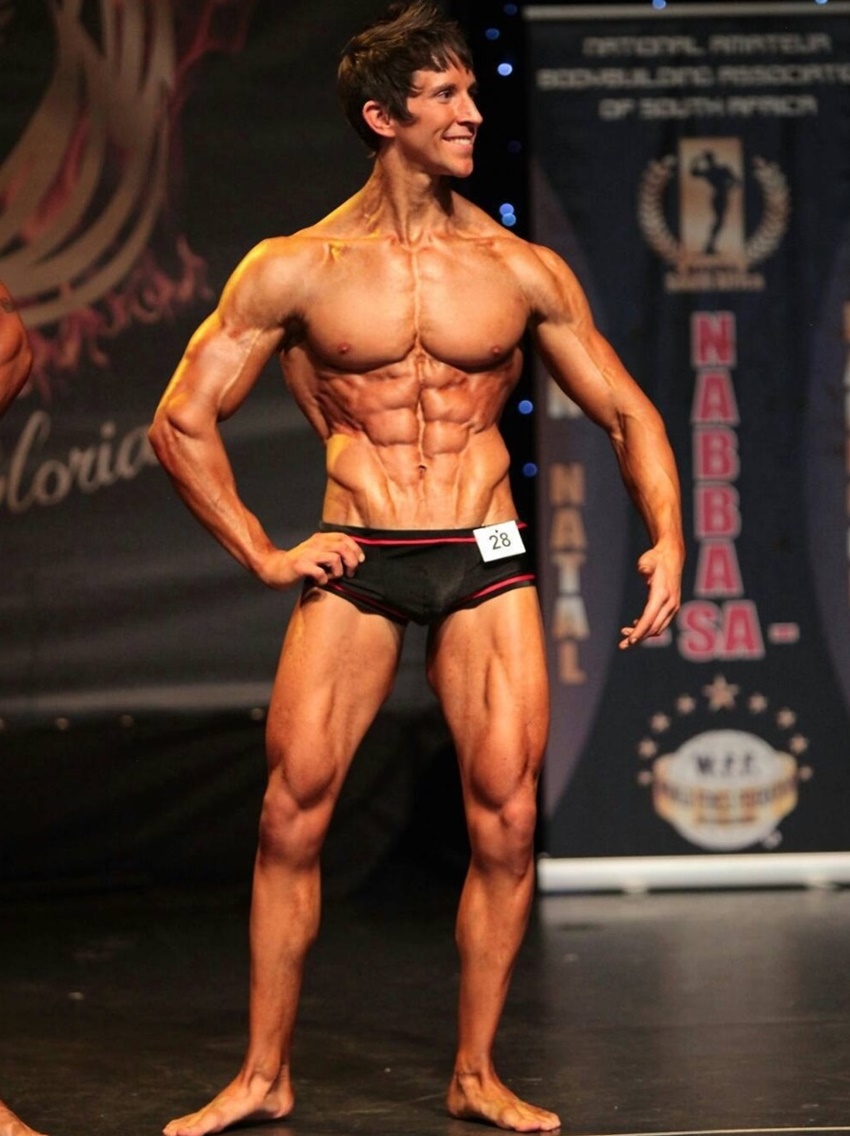
What are your future plans?
In terms of competing, I will most likely take this year off in order to work on weaker areas of my physique. This is difficult to do when you are constantly prepping for your next show.
Career wise, I will continue assessing athletes (most of the athletes I see do endurance-type training or mountain climbing) but I may focus more on recreational athletes and those involved in the fitness and bodybuilding industry.
Tell us a bit about your research (hopefully we will understand it :p ) and has it helped you with your own bodybuilding and fitness?
I am currently completing my dissertation at the moment. In brief, I have been looking at non-communicable diseases as a result of a sedentary lifestyle.
We all know that too much sitting (or sedentary activity) is not great for your health and I am basically looking for the mechanisms (and certain proteins) responsible for this. I prompted breaks in sedentary time in office workers throughout the working day using text messages, and searched for any changes in their blood, body composition, ‘fitness’ (VO2 max), overall arterial health etc.
In order to publish, you essentially need to review the literature across the entire field of physiology and I find this helps me to stay current with the latest findings in exercise (training/nutrition etc.) which I can then try incorporate into my own training.
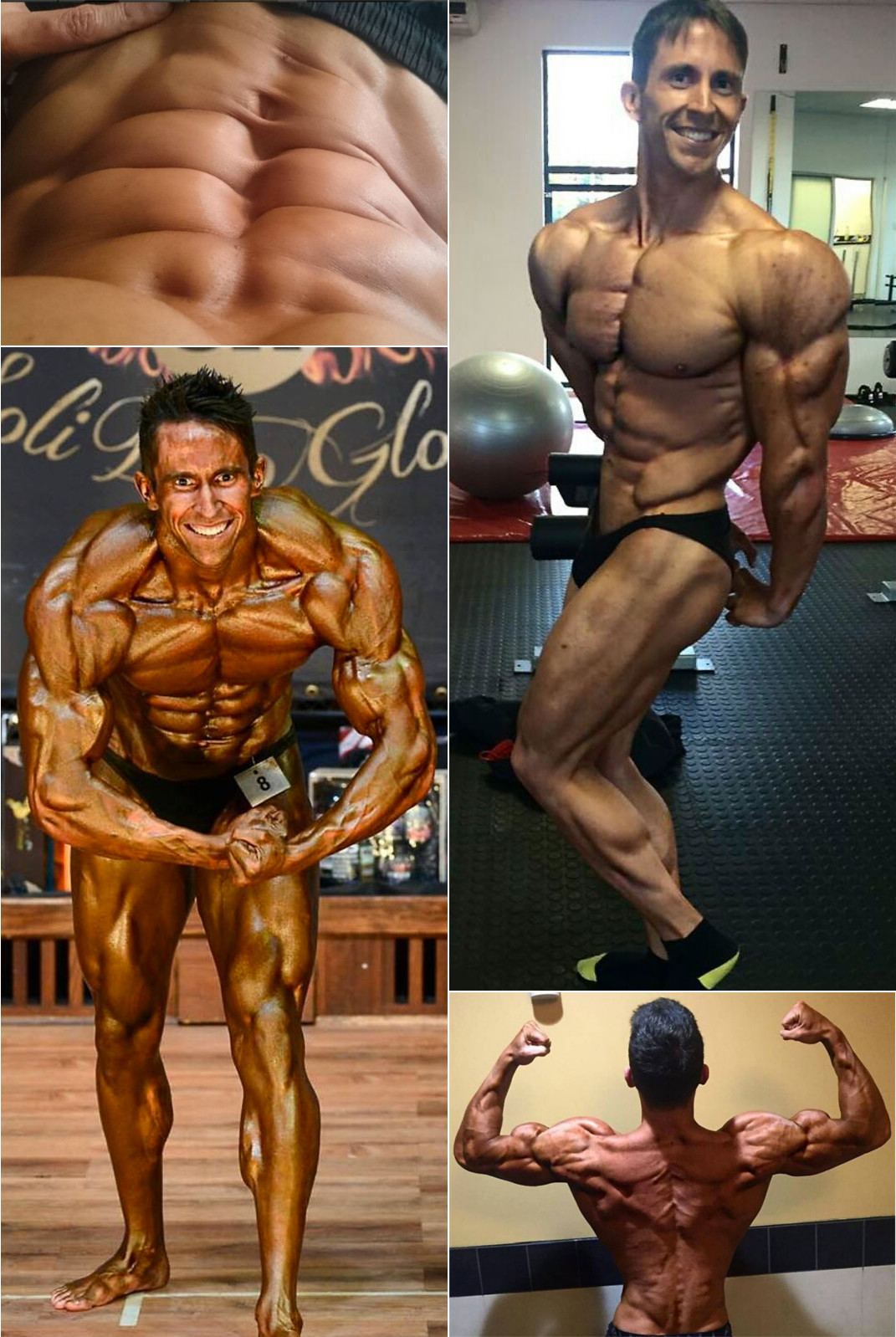
What are your top nutrition tips to a guy trying to gain mass and muscle but who just doesn’t seem to be winning?
This can actually be quite complicated, because there are many factors involved when trying to gain muscle mass.
In most cases, the athlete is usually not eating enough, even if they believe they are!
I think it is important that you assess how many calories you are consuming in order to maintain your current weight, once this has been established, you then need to ensure that you are not expending more energy than you are consuming.
Having said this, it is very important that you get these calories from quality food sources. The timing of each meal is also very important. For example (in my opinion), it would be best to eat slower digesting carb sources (e.g. whole-rolled oats) in the morning and times when you are least active, and faster digesting carb sources (e.g. white potato/basmati rice) after training or during the times that you are most active.
Remember to include lean sources of protein with these meals, and remember not to restrict any macronutrient group too severely (unless you have a medical reason for doing so obviously).
During competition season, I do find that I restrict certain food groups – it works for me – but it’s not necessarily the best or only way to do it, and it certainly won’t work for every person out there.
When I am not competing, I generally consume around 40% carbohydrate, 40% protein and 20% fat. I prefer a slightly higher protein proportion in my diet. I am also sure never to drop my proportion of fat consumed below 15% (I find 20% to be optimal).
What process do you follow when it’s time to start getting ready for a competition?
In terms of nutrition, it usually involves manipulating carb and fat intake. I will start moving towards non-starchy carbs like sweet potatoes and reducing my total caloric intake (although, not excessively).
Fast/junk food gets limited (if it’s something you eat a lot) and often dairy will be cut out (and other sources of sugar). Close to competition, I would essentially drop carbs to around 50-75g per day – this would be my decarb in preparation of ‘carbing-up’ and storing more glycogen for show day.
However, it’s always best to have an experienced coach keep an eye on you during this time! In terms of training, the sessions become more intense and generally shorter with fewer rest intervals. I still try to keep my strength up as much as possible so I will typically do heavier lifts in my first couple of sets and then move on to super-sets and drop-sets.
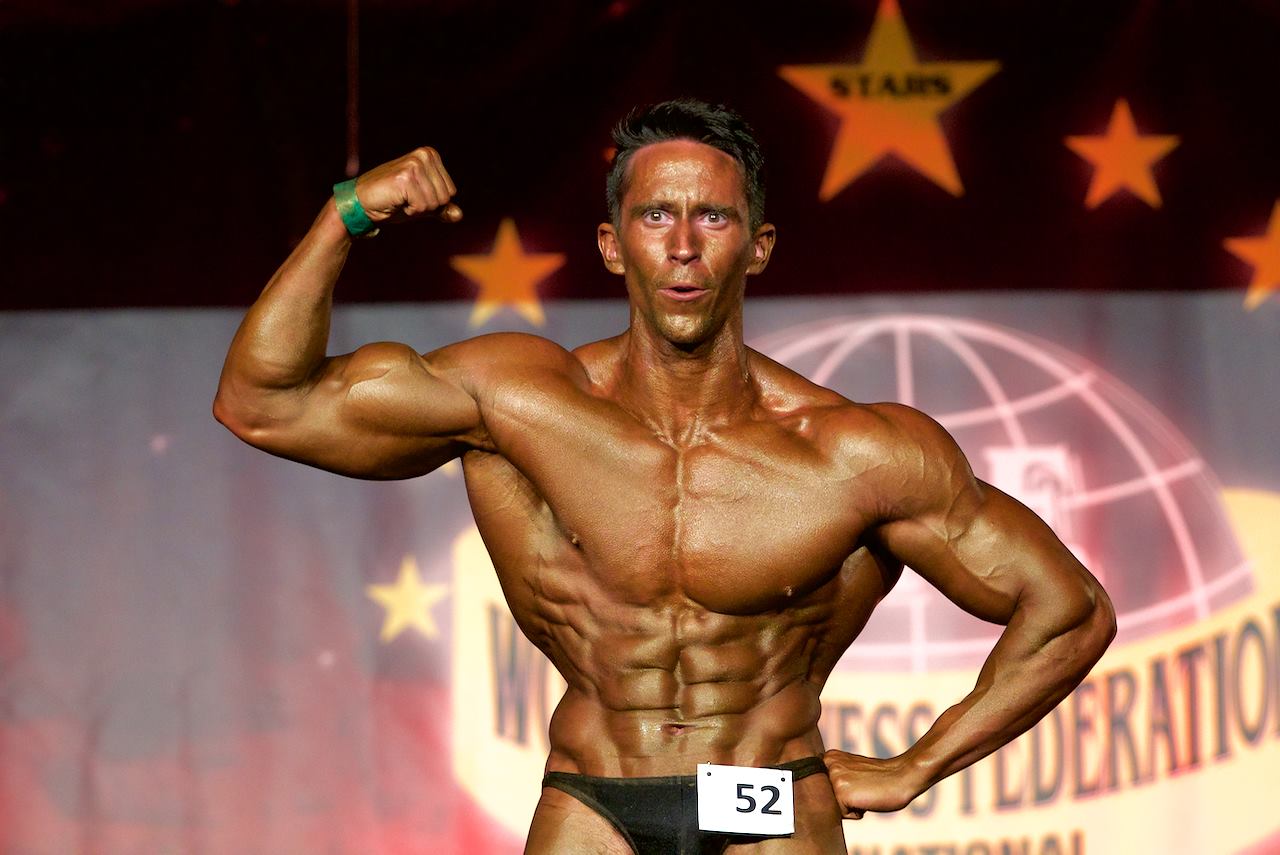
Take us through an average day of yours:
- I usually wake up around 05h00 for some ‘fasted cardio’ (I will however, take BCAA’s during this) afterwards, its back home for breakfast.
- Depending on my schedule for that day I would either go to work or varsity otherwise I am back for my weight training session around 11H30 (I am lucky enough to have quite flexible work days so I am able to do this).
- After training, it’s back to work, and obviously I have my meals throughout the day. In the evening I may go to gym again for some interval training, after which I have another meal before going to sleep.
What do you usually eat pre and post workout?
- Pre-workout is usually just a whey protein supplement (I will have a full meal about 2.5 hours beforehand).
- Post-workout is usually grilled chicken (or a lean source of protein) with white basmati rice/white potato. Nice and simple!
Give us a brief description of your philosophy on your training schedule, how many times a week do you workout for and how long are your training sessions?
I believe that 5 or 6 days of training a week is enough. However, some people can train fewer days and see really great results.
Admittedly, I get a bit carried away most weeks and end up training 7 days a week and this is simply because I love to train (and not necessarily the best thing for me!).
In all honesty, I would likely see more progress from taking more days off! Each weight training session is about an hour long. My fasted steady-state training is about 30 minutes and if I do interval-type cardio, it is usually only 15 minutes long or so.
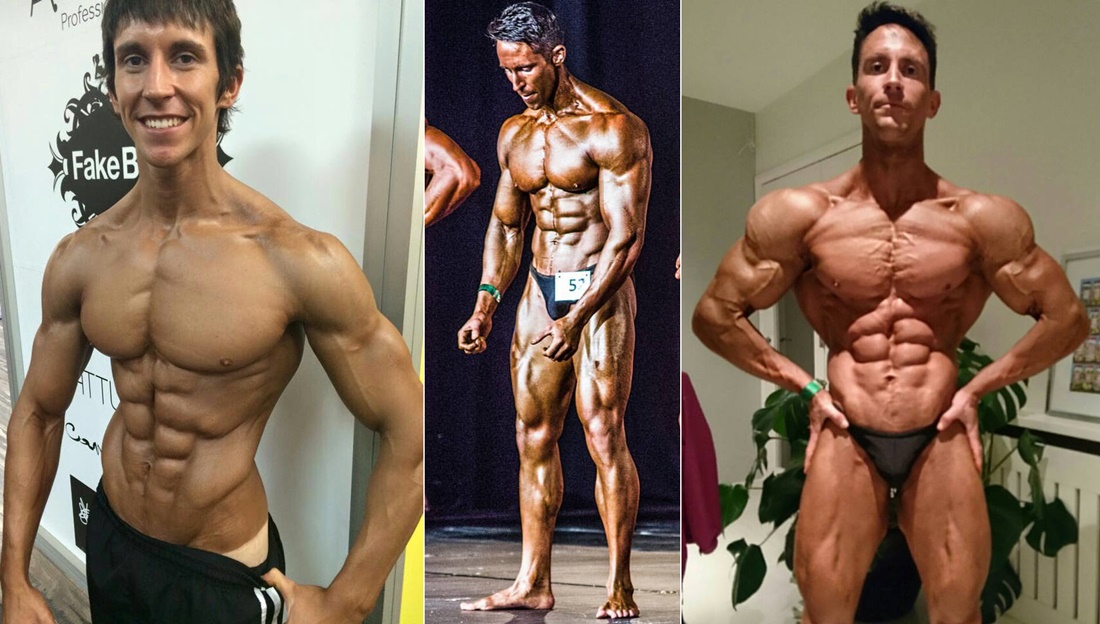
How does your training differ from off season to pre comp, if it does?
My off-season training is usually just heavier with longer rest intervals (normally these sessions are longer) and I will try to do more compound movements.
During my on-season training, my sessions are usually shorter and more intense, focussing more on muscle group isolation.
What are some of the mistakes you see guys making when preparing for a competition and trying to lean down?
I am far from an expert to comment too much on this, but I think sometimes athletes try to drop weight too quickly, by cutting out a large amount of food or training excessively. In doing so, you risk losing strength very quickly (ultimately muscle mass) and you essentially ‘damage’ your metabolism.
You want your metabolism to work for you, and not against you, and if you can do this I believe you will see a big difference in your physique/performance.
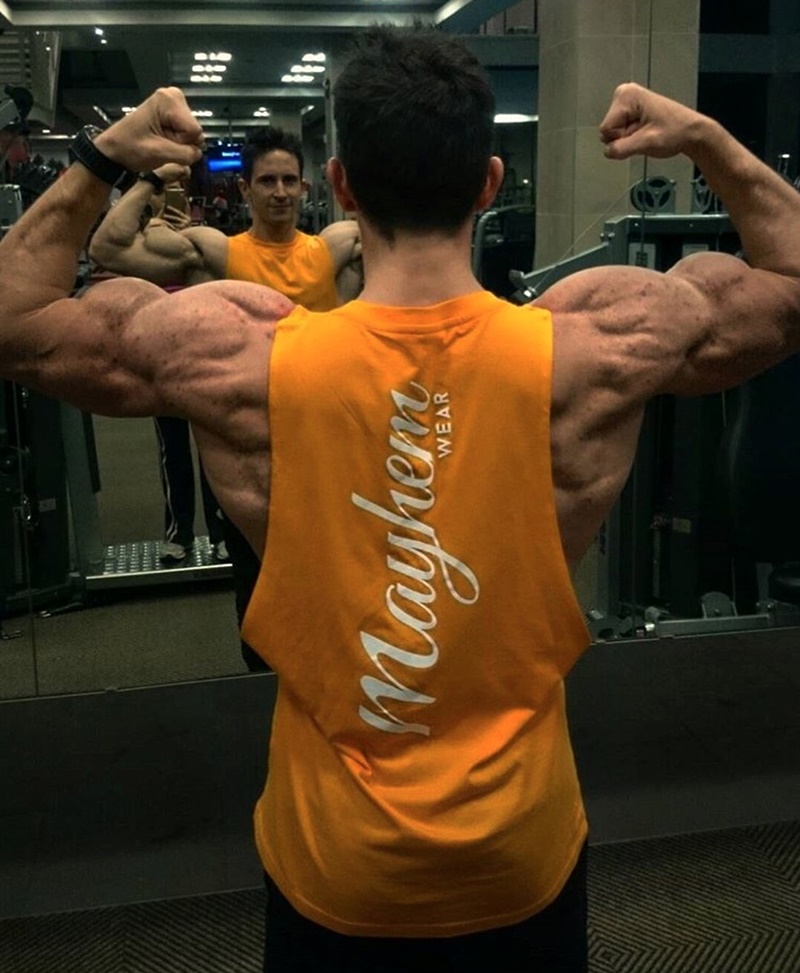
What are your three favourite exercises and why?
1. Bench press
Probably very cliché, but it’s just one of those exercises I have always liked. I think it is because it is relatively easy to see improvements in.
2. Shoulder press
In my opinion, my shoulders have never been my strongest point but they can change the entire shape of your physique.
3. Wide-grip pull ups
Just another exercise I love to do!
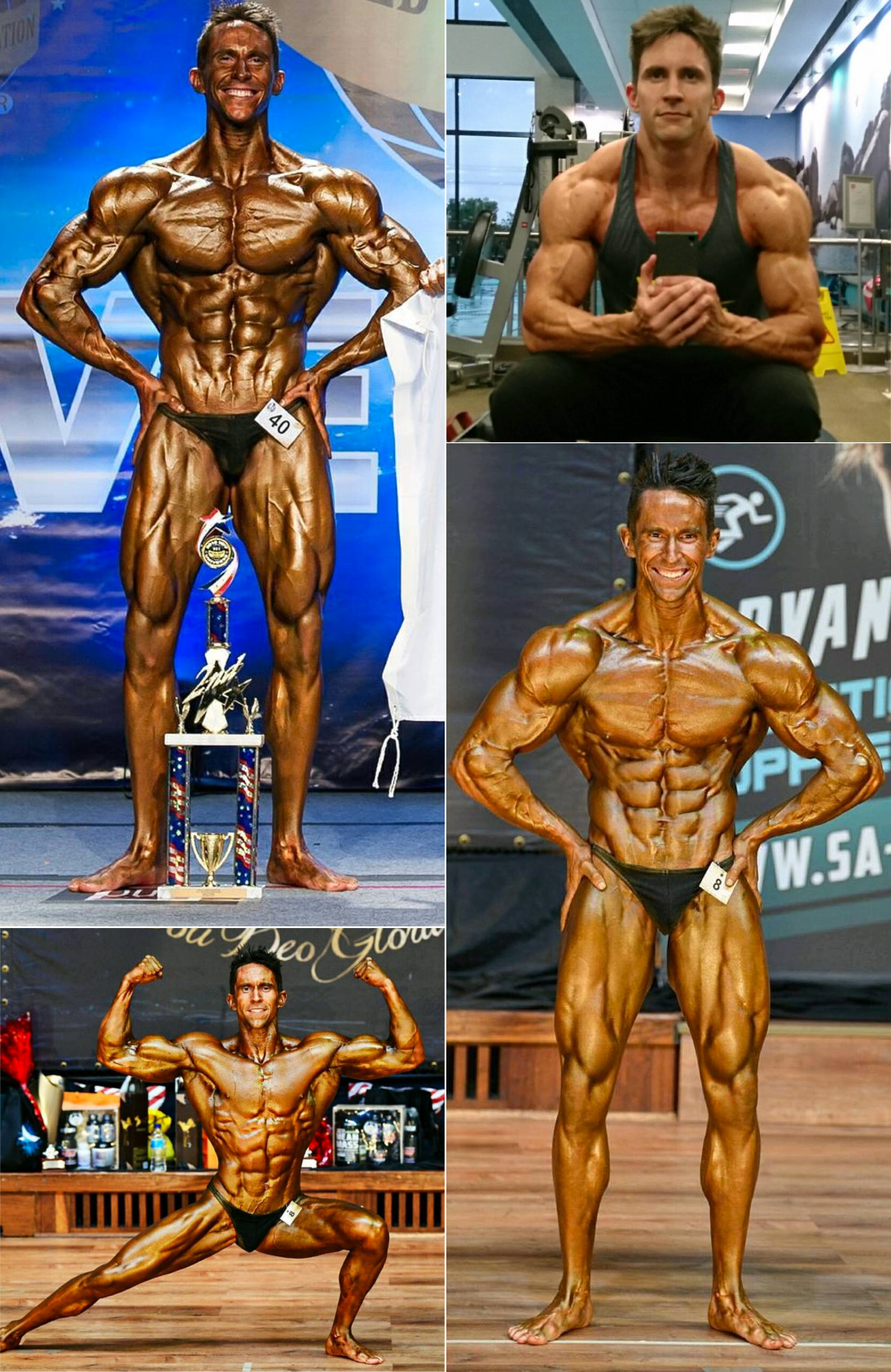
What’s your take on abs training and what kinds of training do you do for them? Do you think it is necessary?
I think too often people expect more from their abdominal training. It’s great to have a super defined mid-section but most of the time it’s not ab-work that will get you that!
If you are lean, then ab training will definitely give you a nicely toned mid-section but you need to be relatively lean first! Having said this, I do believe it’s necessary (it’s always good to train your entire physique).
I usually alternate between days of weighted abdominal training (e.g. using cable machines etc.) and days of time-based (around 6-7 minutes) bodyweight abdominal exercises (crunches etc.). There are hundreds of different exercises, so it’s easy to keep it interesting and challenging.
What is the most common question you get asked?
“Are you going to eat that?” – “Yes.”
Favorite Influential bodybuilders:
Frank Zane, Bob Paris.
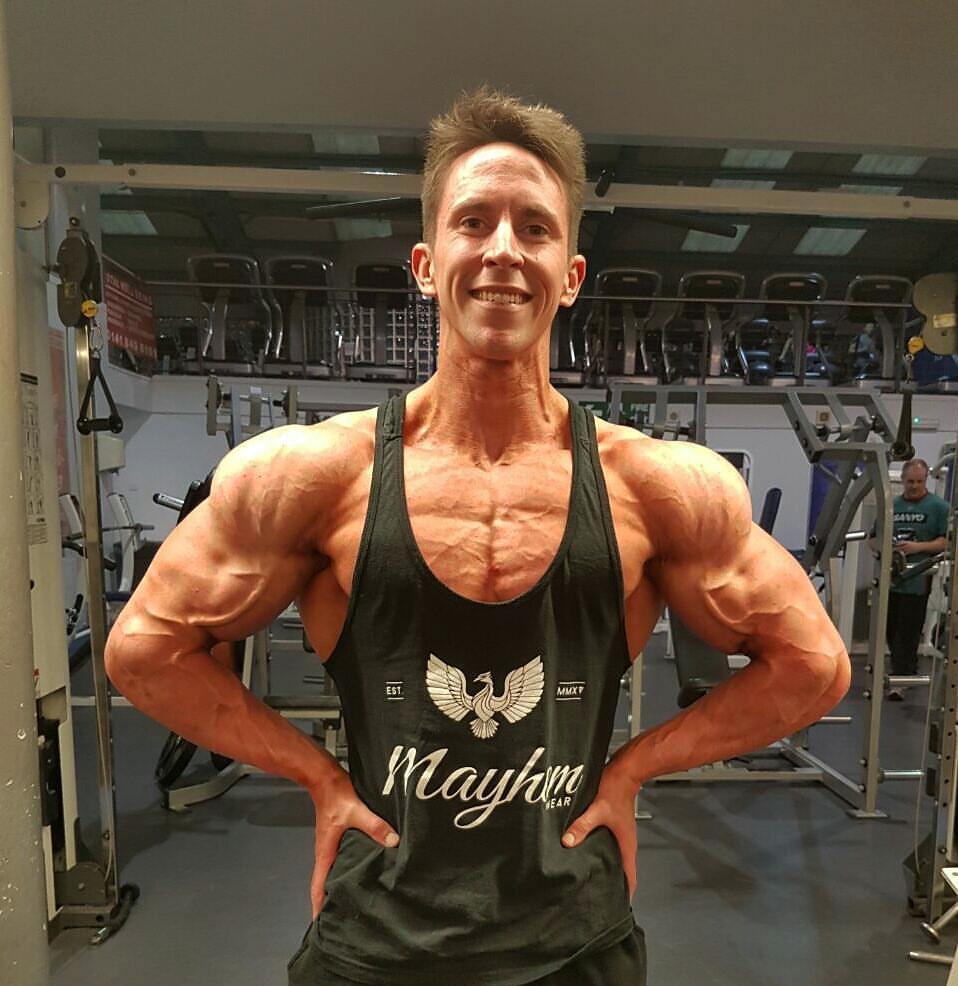
Favorite Quote:
“No man has the right to be an amateur in the matter of physical training. It is a shame for a man to grow old without seeing the beauty and strength of which his body is capable.” ~ Socrates
What advice would you give to someone just wanting to lose weight, build some muscle and be healthy but is unsure where to start in the gym?
Research as much as possible! Everyone is different, and mimicking what fitness icons say and do won’t necessarily work for you. They have likely spent years experimenting with different training programmes, different exercises, and nutrition plans etc.
Some will work for you and some won’t. My advice is to speak to those who are experienced or who are professionals, get some advice, and try it for yourself.
Be consistent and persevere because it may take time to see any noticeable changes. If that piece of advice doesn’t work for you then try something new. Just don’t give up!

What competitions have you competed in and your placings?
2015
- Mpumalanga NABBA/WFF provincial championships | 1st | male model
- South African NABBA/WFF national championships | 3rd | male model
- WFF World Championships | 4th | sports model
2016
- NABBA/WFF PTA Classic | Men’s fitness bodybuilding (classic bodybuilding) | 1st
- WFF Universe Championships, Orlando Florida | Men’s fitness bodybuilding | 2nd
- WFF World Championships, Dublin, Ireland | Men’s fitness bodybuilding | 5th
Where can people get hold of you?
- Instagram: jason_dunning_fitness
- Facebook athlete page: JasonDunningFitnessAthlete
- Email: dunningj[at]mweb.co.za







